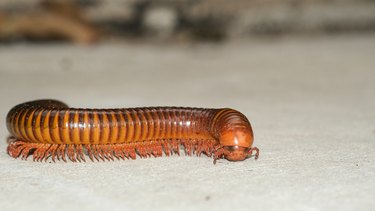During the warm summer months, insect activity is at an all-time high, and they will find a way to pester you both indoors and outdoors. Keep yourself prepared for battle with these pesky insects with this list of 10 of the most common summer pests and how you can prevent them.

1. Mosquitoes
Mosquitoes are more than just a nuisance. These irritating insects can spread deadly diseases to you, your family and even your pets. Keep everyone safe and clear your yard of any standing water, which is the perfect breeding ground for mosquitoes. This can include something as small as a bottle cap. Things like citronella candles and bug spray can help deter the strays, but prevention is key.
Video of the Day
Video of the Day
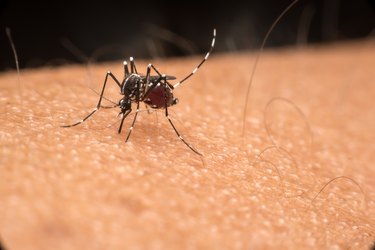
2. Fleas
The warm weather of the summer months means more time spent outside, which also means more chances that you'll have to deal with a flea infestation. It can be hard to completely safeguard your pet without monthly flea treatments, but you can try to make your house as unwelcoming as possible for the fleas. Make sure you're also keeping up with yard maintenance, like mowing the grass and getting rid of any piles of leaves since fleas thrive in dark, humid conditions.
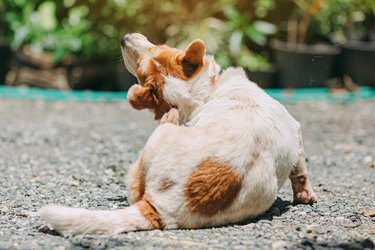
3. Ticks
Ticks are responsible for transmitting over 300,000 new cases of Lyme disease each year. Protect yourself when you're spending time outside by wearing long sleeves and pants and staying out of overgrown brush. You can also help keep your pets safe by spraying them with an all-natural tick repellent made with apple cider vinegar, water and lemon juice.
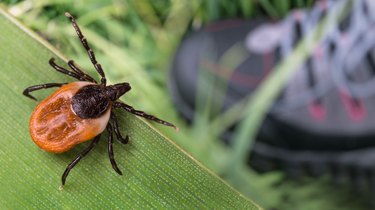
4. Flies
Where there's a summer barbecue and plates of delicious food, there are flies. That doesn't always have to be the case. Take precautions at your next backyard party and keep food covered. Keep garbage bags tied to help keep the swarms of flies at bay. Incorporate plants, like mint, basil and peppermint, in your garden for an all-natural preventative.
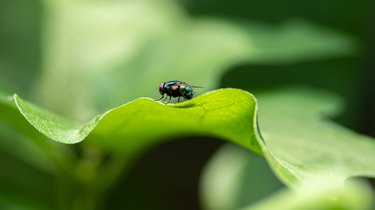
5. Spiders
Spiders are around all year, but these unwelcome house guests make their appearance like clockwork every summer since the warm months coincide with their mating season. They usually make their way into your home through cracks in the foundation or gaps in doors and windows, so be sure to seal those cracks to discourage them from coming inside and laying eggs. You can also replace outdoor light bulbs with yellow ones since they are less likely to attract insects, spiders included.
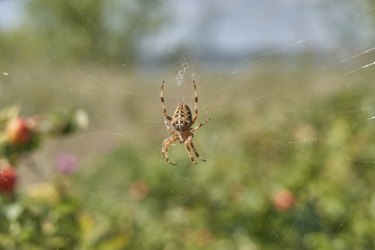
6. Wasps
Wasp and hornet nests seem to be everywhere in the summer. They are not the kind of insects from which you can protect yourself with bug spray, but there are other ways you can try to avoid a sting. They are attracted to flowers, so ditch the strong perfume and wear plain-colored clothing. The more you look and smell like a flower, the more likely a wasp might mistake you for one.
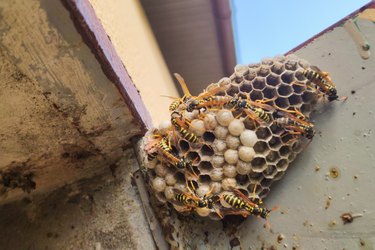
7. Cockroaches
With all the rain that summer brings, it also brings along another unwanted intruder: the cockroach. Running inside to escape the rain and get a bite to eat, cockroaches can enter your home through any tiny gap. Use tight-fitting screens for windows and sweeps under doors, especially if you live in an apartment, to prevent the roaches from hopping between units. They're also attracted to scraps of food, so be sure to do the dishes before you go to bed and don't let them sit in the sink.
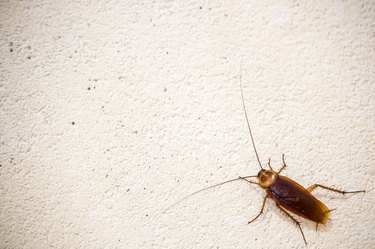
8. No-See-Ums
You can't see them, but you know they're there because you can feel them biting you. Repellents are not effective against these biting gnats, so it's best to limit your risk of exposure to them. This means limiting your time in places like grassy fields and parks.

9. Ants
There's nothing worse than looking at your kitchen counter and seeing a black line of ants marching across it. Keep them off your counters by putting away any leftovers and making sure your walls are properly sealed. You should also pick up your pet's food bowl before bed so they can't come out for a midnight snack.
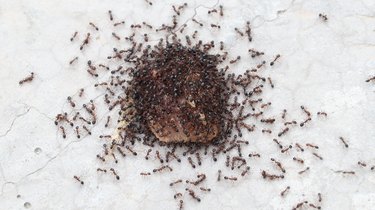
10. Millipedes
While they don't bite or cause disease, millipedes can still be a total pain. Millipedes can travel in large numbers during the end of the summer, especially after a heavy rain storm. They can easily crawl in the house unnoticed and will make themselves comfy. Keep the exterior of your place clean and free of debris piles and this will be a problem of the past.
